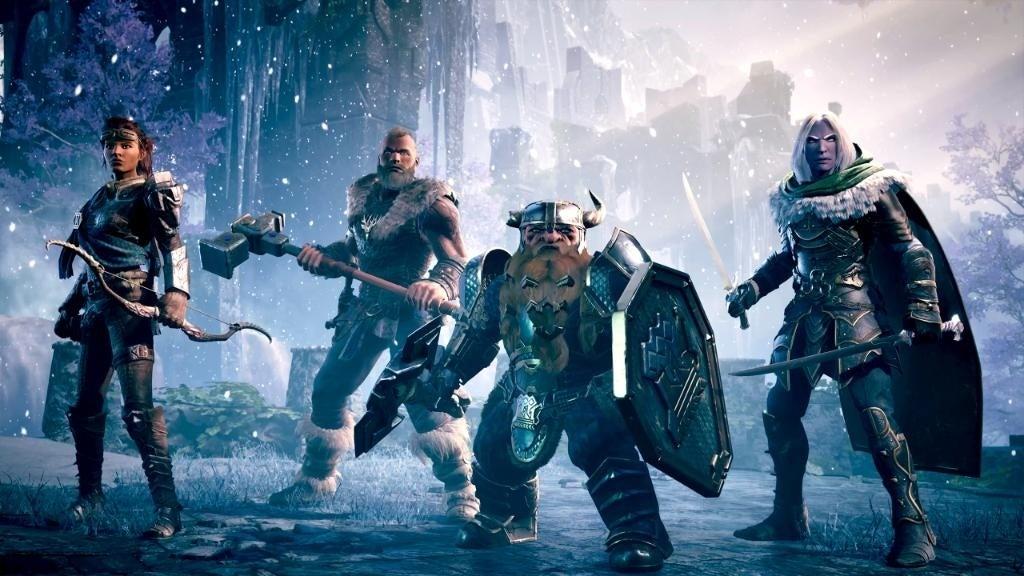ESG-friendly is a corporate term meaning Environment, Social and Governance, as in corporate governance. Normally it means stuff like, using green energy where possible, or green-washing via carbon credits (unfashionable now as even the public is catching on that they're a fraud), avoiding working with suppliers who don't have good social policies*, and ensuring the company itself has good hiring practices, doesn't discriminate on race, gender, sexuality, etc.
@Desdichado seems to be using it a sort of derogatory way, which is kind of weird, especially as the only part which could really apply to Netflix's output is "social" and on the contrary, Netflix have actually been somewhat
méchant as the French say, on that front.
I'm also rather confused by his claim below:
it's overly corporatized, it's made by committee, it's made by people who don't like the source material that they're adapting and who insult the fans who don't want things adapted in a way that doesn't resemble the source material
I'm looking at Netflix's history of adaptions, and I'm not seeing a pattern of that at all.
The only obvious example is Cowboy Bebop. Basically no-one asked for a live-action version of an ultra-stylized anime classic from the '90s, but they gave it to us anyway, with a 50-year-old with almost no martial arts experience playing a character intended to be 29 to 32 who is a Bruce Lee-level (and style) martial artist. It didn't seem "made by committee" though - god if anything a committee might have helped! It's a singular vision, just a bad one.
Most other Netflix adaptions either improved on the source material (Altered Carbon), or made fans extremely happy with it despite changes (Shadow and Bone). I think he's trying to talk about The Witcher, but any "fan complaints" (which seem to be extremely sketchy and vague) are meaningless there, because The Witcher has been an absolutely huge success for Netflix, and the idea it's demonstrating a problem is just a bad joke.
Netflix's problems seem to stem from other areas, one of which @Deschaido mentions - the insanely foolish decision to reduce real consumer value by cracking down on password sharing. Netflix is already overpriced relative to other streaming services (esp. as you can't get 4K outside the most overpriced package - something competing streamers like Disney, Apple+ or Prime simply make part of the package), so lowering the perception of value even further is absolute insanity. There's no doubt it'll backfire. The only question is how hard.
Another major issue, and real issue unlike the "disrespectful adaptation" stuff is that Netflix cancels shows willy-nilly. It used to be Netflix, by design, waited until a show had two seasons before cancelling, because their metrics showed that a show with two seasons got viewed vastly more than one with just one. However, that's gone entirely out the window, and now Netflix cancels shows after one season constantly. It also cancels shows extremely quickly after release, which is perhaps a kindness on a certain level, but also means nobody is going to watch that 1-season show that had its cancellation announced like two weeks after it came out.
On top of that they have a bizarre release schedule where they very frequently run over one show's release with another show. 1899 is a good example - I didn't like it much personally, but a lot of people did, and it looked like it had potential. However it didn't get a lot of views because it came out a week before a new season of Stranger Things.
* = The social bit can be a major issue for companies which are primarily supplying large corporations and the like, because in order to get a lot of big contracts today (and even some small ones) in the US, you often have to provide details of what your company policies are on things like hiring, discrimination and so on, what the actual make-up of your company is in term of race, gender, disability, and the like. In theory this is a good thing but certainly causes a lot of sweating for SMEs trying to ensure they meet the requirements, especially those in the Midwest and the like, but that's a whole other discussion.


comicbook.com
